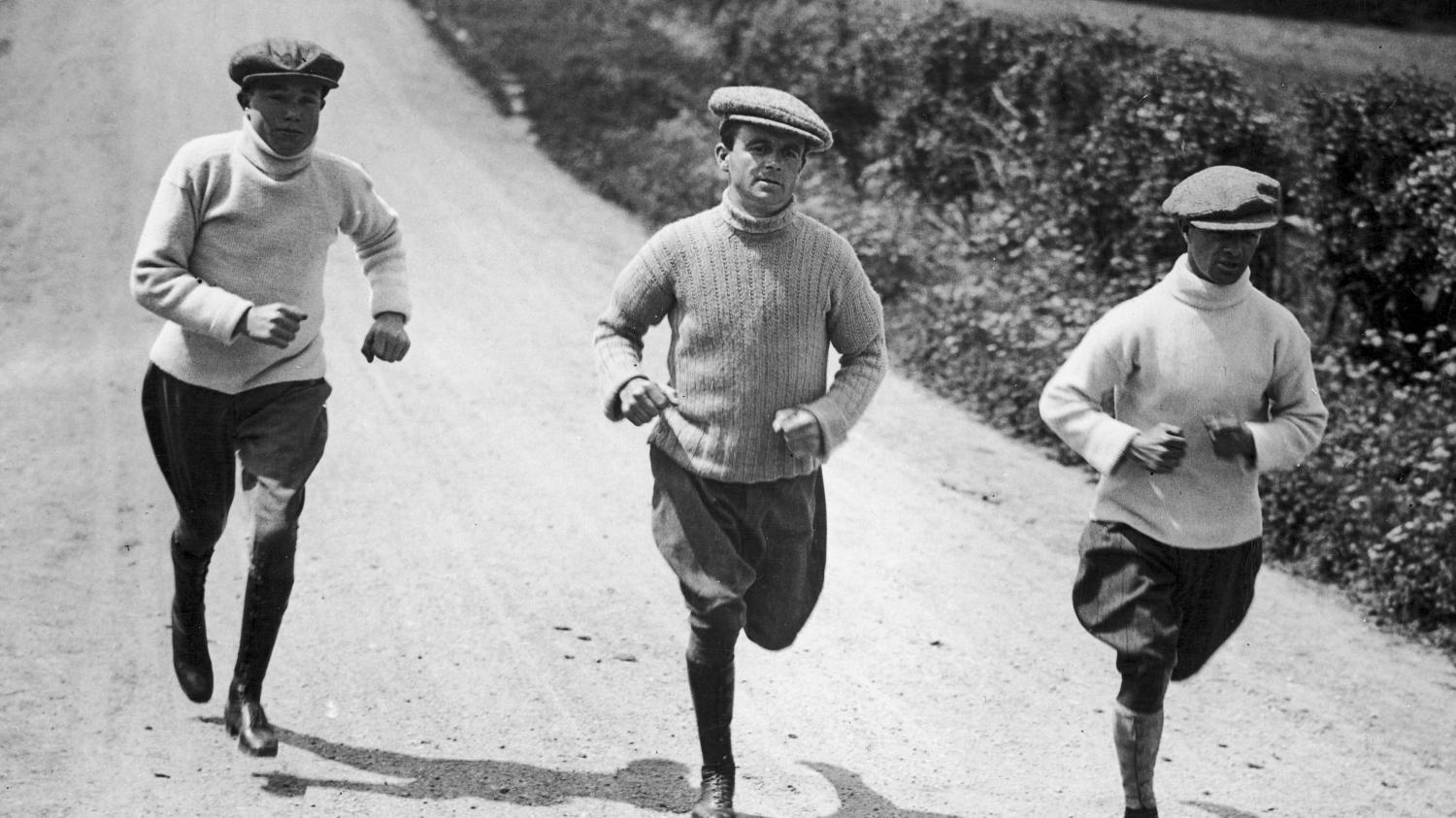Those who find themselves about the middle of the evening in London streets comparatively unfrequented at that hour sometimes become aware of a pattering sound which suggests neither the ordinary human tread nor the sound of horses. Presently lightly-clad youths dash past, legs flashing bare, feet rubber-shod; earnest members of some athletic club training under difficulties. It needs courage, and a certain imperviousness to satire, to career about the streets of London, even at night, in running shorts. The fact that men will do it, and do it at the end of a day of toil, is significant of the lengths to which they will go in search of physical fitness. They have their more conspicuous compeers, who submit themselves to an iron discipline for a boat-race or a boxing contest. These are able to make their training something of a whole-time occupation, and possibly find no little consolation in the fact that their agonies are endured more or less in the eye of an adoring public. A much greater measure of determination is wanted when there is no such lodestar. That is the problem of those whom the numbing hand of time or circumstance holds back from high physical endeavour. Even for them there is no lack of hope, and elderly men perform prodigies of Spartan and Berserk valour before open windows on chilly mornings, or practise on the bath-room floor feats calculated to keep them contortionists at seventy. The wonder is that those who will go through so much for physical fitness do not see the wider implications of their philosophy. For there is a fatness of the mind and spirit which is no less afflicting to its victim and no less unsightly to the beholder. The man who will spend a wealth of thought on taking inches off his waist forgets the greater need of keeping within bounds his mental and moral girth. Philosophers have advocated, for the training of the will, the doing daily of something that one hates the thought of doing. This fitness is no ad hoc excellence, but an unremitting exercise. But if its virtue must be its own reward at least it will not come empty-handed to the fit man’s fellow. And, after all, this continuous and general activity of the moral nature at its highest pitch sounds strangely like the Aristotelian definition of happiness.

